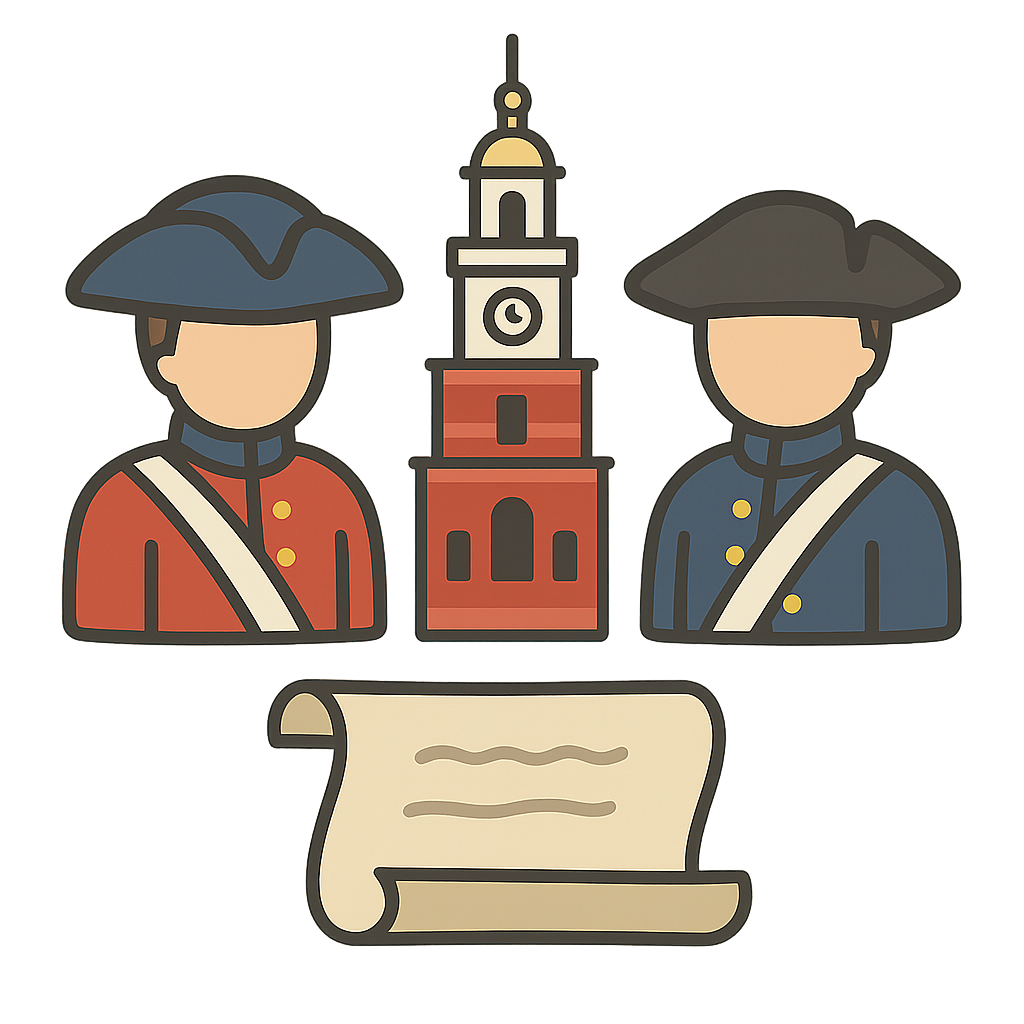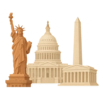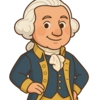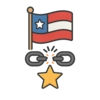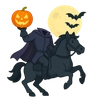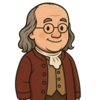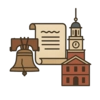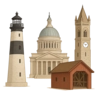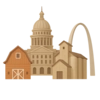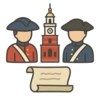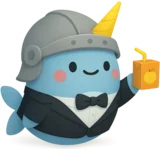George Washington and the Fight for Freedom
My name is George Washington, and before I was a general or a president, I was a farmer. My heart belonged to my home, Mount Vernon, in Virginia. I loved the smell of the rich soil and the sight of the Potomac River flowing peacefully by. But even in my quiet home, a storm was brewing across the land. We were colonists, living in America but ruled by the King of Great Britain, George III, who lived an ocean away. The problem was simple: the King and his government were making rules for us and demanding we pay money, called taxes, on everything from tea to paper. But they never asked us what we thought. We had no voice, no say in the laws that shaped our lives. It felt deeply unfair, like a parent making rules for a child without ever listening to them. I believed with all my soul in liberty—the idea that people should be free to govern themselves. My neighbors and friends felt the same way. We tried to speak to the King, to explain our feelings, but our words seemed to travel no farther than the shore. It was a difficult choice, one that kept me up many nights, but we realized that to be truly free, we had to stand up for ourselves. We had to fight not just against unfair rules, but for a whole new idea: a country of our own.
Being asked to lead our new Continental Army was one of the greatest challenges of my life. I was a farmer, not a general who had commanded thousands. And who were we fighting? The British Redcoats, one of the most powerful and well-trained armies in the world! Our soldiers were brave farmers, blacksmiths, and merchants. They had passion, but we lacked training, supplies, and sometimes even shoes for their feet. The early days were very hard. But then came a moment that changed everything. It was Christmas night in 1776, and a bitter wind howled as snow swirled around us. My soldiers were discouraged, but I knew we had to do something bold. I decided we would cross the dangerously icy Delaware River in the dead of night to surprise the enemy soldiers quartered in Trenton. The boats slipped between chunks of ice, and the men shivered, their breath turning to frost in the air. That victory was a spark of light in the darkness. It gave us hope. The following year, we faced our hardest test during the winter at Valley Forge. From 1777 to 1778, we weren't fighting the British, but we were fighting against starvation, disease, and the freezing cold in our drafty wooden huts. It was a terrible time, but it was also where we became a true army. A wonderful man from Prussia, Baron von Steuben, came to our camp. He didn't speak much English, but he knew how to train soldiers. He taught my men how to march in formation, how to use their bayonets, and how to work together as one unit. The cold of Valley Forge nearly broke us, but instead, it forged us into something stronger.
After years of struggle, the moment we had all been fighting for was finally within our reach. The year was 1781, and the war had moved south to Yorktown, Virginia. The British army thought they had us cornered, but we had a plan and some very important friends. The French, who believed in our fight for freedom, had sent their powerful navy and thousands of soldiers to help us. Together, we surrounded the British at Yorktown by both land and sea. They had nowhere to run. The cannons roared for days, and finally, the British commander surrendered. I can still see the sight of the Redcoats marching out, laying down their weapons. The war was over! We had won. In 1783, we signed the Treaty of Paris, and Great Britain officially recognized us as a new, independent nation: the United States of America. It’s hard to put into words the feeling of that victory. It wasn't just about winning a war; it was about winning the right to build our own future. Looking back, I see that we created more than just a new country. We created a promise—a promise that a nation could be built on the idea that its people should be free to choose their own leaders and their own destiny. That powerful idea was the greatest gift we could pass on to all the generations of Americans who would come after us.
Activities
Take a Quiz
Test what you learned with a fun quiz!
Get creative with colors!
Print a coloring book page of this topic.

